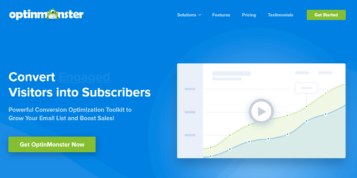The world of ‘big data’ is well and truly upon us, and while retail companies are quick to purchase consumer insights, many are failing to exploit their own wealth of in-store customer data. There is often a gold mine of valuable in-store transaction data sitting in retailers’ CRM, eReceipt and EPOS systems that can be used to drive online marketing and sales campaigns. Knowing how to extract and interpret this data is crucial if retailers are to remain competitive, profitable and prevent their businesses from caving in.
Troubling times
Competition from online rivals, inflation, and poor sales are just some of the worrying trends facing the UK’s retail industry. With Maplin and Toys R Us joining a growing list of high-profile retailers falling into financial difficulty in recent months, businesses are seeking ways to extract information from rich veins of customer data, to allow more targeted consumer marketing.
Commenting on the recent financial troubles of Toys R Us, Richard Lim, chief executive of Retail Economics, said: “All is not well on UK high streets. The perfect storm of spiralling operating costs, softer consumer demand, and seismic structural changes has claimed another victim. Put simply, the retailer was too slow to embrace omnichannel, were burdened with too many stores and failed to deliver a retail ‘experience’ good enough to stand out from their competitors.”
Many retailers are blaming the growing popularity of online retailers, such as Amazon, for declining sales as consumers opt for more convenient online and mobile shopping experiences. However, according to a recent survey, consumers still do the majority of their shopping on the high street, with 62% of shoppers choosing bricks-and-mortar stores over e-commerce platforms.
Shifting consumer expectations in the market requires flexibility and adaptation. Customers haven’t abandoned in-store shopping, they just need retailers to catch up with the likes of Amazon in using the data they have at their fingertips to better target customers with relevant products.
Spending on social increases
To convert traditional, off-line shoppers, retailers are boosting their marketing spend across channels. For example, Facebook retailers have, on average, increased their advertising spend during the 2017 Christmas holiday season by 186%. The combination of more activated shoppers and increased budgets resulted in retailers achieving an average increase of 75% ROI on their Facebook spend during this period.
Yet, many retailers continue to measure the success of their campaigns based on website conversions alone. An even greater number of retailers are failing to realise opportunities to exploit this enormous influx of in-store sales data generated during their busiest sales period of the year. As we head towards spring, it’s important for retailers to maintain this momentum and begin ramping up their online advertising efforts.
Measurement matters
Even for the savviest of retailers who have already started implementing multi-touch, consumer-purchasing solutions, measuring the results from individual marketing campaigns can sometimes prove challenging.
One method is to use personal identification information, such as email or telephone numbers. This data can be used to measure which Facebook and Instagram campaigns have helped drive customers in-store, helping retailers optimise the return on their omnichannel adverting spend and drive customers towards their preferred method of shopping.
In June 2016, Facebook introduced a new ad format allowing retailers to analyse in-store data. However, due to its complexity, the new feature has had limited success, with retailers required to provide large amounts of in-store data. Integrating this data presents several challenges relating to data privacy, ownership and security.
Passing data to Facebook requires a considerable investment in scarce technical resources to allow integration with Facebook’s ever-changing APIs. To meet Facebook’s specifications, data must also be aggregated, cleansed and processed accurately – a time-consuming process for many retailers who so far have been slow to adopt this feature.
In launching its offline capabilities, Facebook has relied on dedicated marketing partners to enable omnichannel campaign optimisation. Approved partners help address data security concerns by operating as a data ‘safe haven’ by passing limited, filtered and cleansed in-store data to Facebook for attribution. Partners can then leverage further ‘private’ in-store data along with online data to perform custom optimisation based on top-selling products, profit margin, store locations and other retailer-specific information, using 100% of their sales data.
Sporting success
One innovative sports clothing retailer worked with partners to integrate data from its web-enabled cash registers, eReceipt systems, and in-store kiosks to discover that its Facebook and Instagram campaigns were driving significant in-store sales. In response to these results, the retailer is now completely overhauling how it optimises its Facebook and Instagram advertising spend. It was very surprised to learn how big an impact its online adverts were actually having on sales in its high street stores. As a result, the retailer is now rethinking its entire Facebook and Instagram campaign strategy to fully exploit omnichannel options now available.
Retailers must start optimising their online advertising spend for both online and in-store experiences. The good news for the slow-to-adopt retailer is that there are still opportunities to exploit Q4 sales data. Through an approved Facebook partner, such as StitcherAds, retailers can retrospectively attribute sales data up to 90 days old, meaning that the intelligence from Christmas sales data isn’t lost altogether.
Now is the time for retailers to stop optimising their campaigns for online conversions. Instead, they need to optimise their Facebook and Instagram campaigns based on the complete range of their customer preferences by leveraging all the data and solutions available to them.





